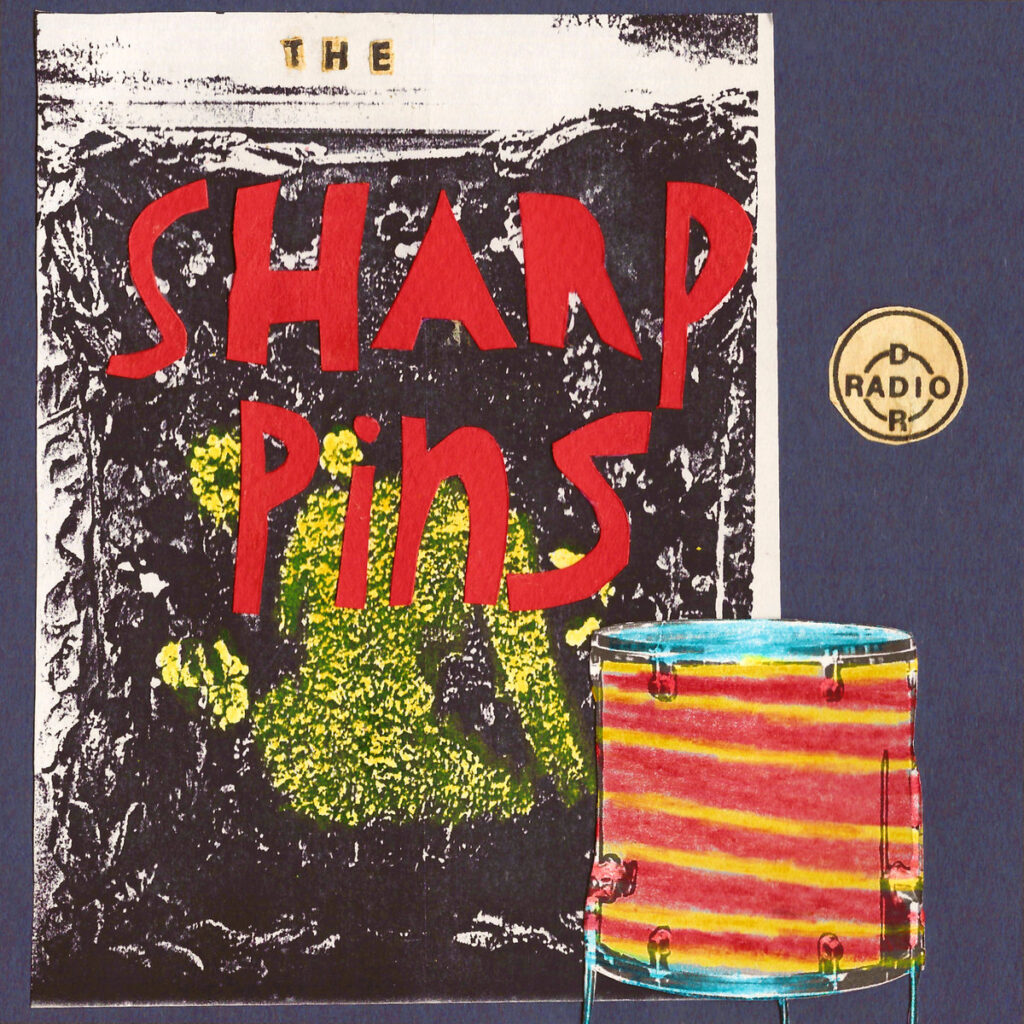Kai Slater returned this year with Sharp Pins’ newest offering, Radio DDR. It continues the project’s scuzzy indie-rock after last year’s delightful, Turtle Rock. Radio DDR really is a record that showcases the brilliance of DIY culture. Slater’s vision is brought to life with fuzzy imperfect vocals, slapping drums, and simple jangly guitars – what more could you want?
‘Every Time I Hear’ begins the album with an image of bright summer days, and ‘Lorelei’ continues this, with splashy drums and distorted vocals that sound as if the track is being put through a wartime era radio. At it’s most upbeat moments, Radio DDR falls into the specific kind of psychedelic rock that was popularised in the late 2000s in part by Atlanta band, Deerhunter. It is wonderfully childlike in melody, yet retains a sense of purposeful experimentation that matures the work. Kai Slater is clearly a competent writer and musician, and this is best shown on Sharp Pin’s more unravelled moments.
This isn’t to say that the album is all about fast fun indie-rock songs. ‘You Don’t Live Here Anymore’ is my personal favourite from the record; a sweet slow-dance of a song that feels like the final hours of a day at the beach. ‘Sycophant’ is the most restrained moment on the album, an acoustic song that feels like the anchor holding down the entire project. There are times when Slater’s voice leans into an ethereal ghostliness, reminiscent of Cindy Lee’s, Patrick Flegel, an artist who finds themselves also haunting the hallways of classic sounds through their own interpretations.
‘Race for the Audience’ is the perfect end to the album. It combines everything the listener enjoys from Sharp Pins; the sound is familiar, yet utterly of today. It is often unnecessary to reinvent the wheel when it comes to music, especially when users of said wheel are deft at implementing it in the right way. Kai Slater clearly has a deep devotion for their imperfect lo-fi brand of indie-rock, and it is executed flawlessly. As I mentioned above, albums like Radio DDR, expertly display what brilliance is offered by the DIY music community.
Written by Callum Foulds
